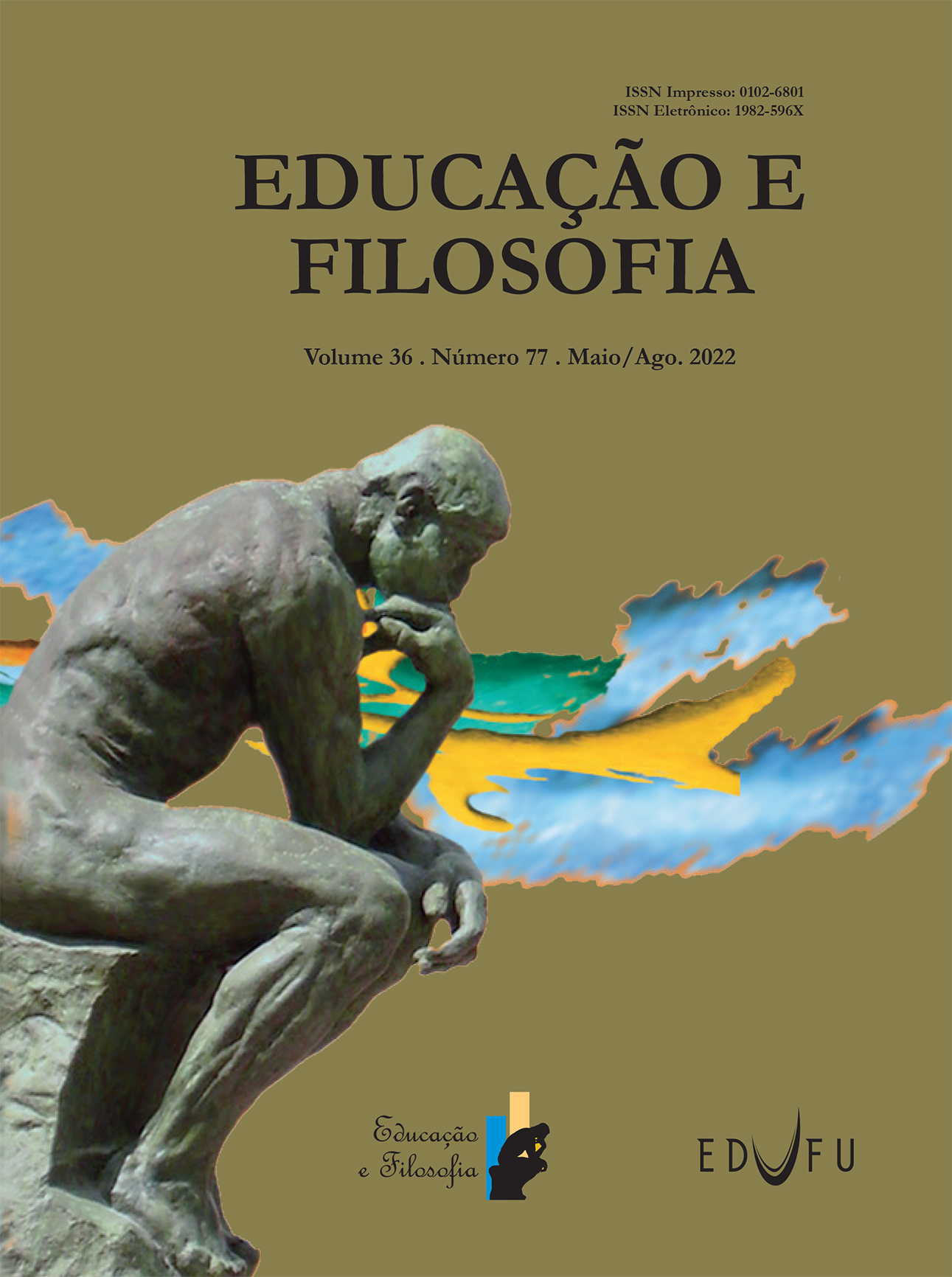Descartes et l'idée de l'homme. Imperfection et perfection de l'homme.
v.34 n.72 set./dez. 2020 • Educação e Filosofia
Autor: Pierre Guenancia
Resumo:
O autor nota, por um lado, que Descartes se refere a uma compreensão muito larga, mas também comum e corrente, do homem e, por outro, que o homem não pode ser identificado nem ao corpo, nem à alma, nem mesmo à união do corpo e da alma. Quando falamos da natureza humana, ela evoca o caráter de uma perfeição limitada, cuja particularidade é sua capacidade de ter o livre-arbítrio. A noção do homem enquanto sujeito de (não) perfeição é baseada sobre uma ideia que se define por uma relação à ideia do infinito sob a forma da aspiração a ser mais perfeito. O exercício do livre-arbítrio se articula concretamente a um esforço de atenção e de vigilância que permite evitar um juízo errôneo. A tese exposta se desenvolve, em seguida, em três tópicos. Primeiramente, a razão se apresenta como um instrumento universal do homem, que, por sua vez, aparece como ser polivalente que o utiliza, sendo capaz de se adaptar às situações as mais diversas. Em segundo lugar, a perfeição especificamente humana significará a capacidade de exercer a dúvida e de recorrer às suposições e probabilidades no plano cognitivo. Isso significa, entre outros, que, para a aquisição da perfeição, é preciso reconhecer a sua própria imperfeição. Enfim, em terceiro lugar, a capacidade de usar propriamente o livre-arbítrio conduz à definição de homem como generoso, em que o homem é compreendido no sentido moral mais que no metafísico.
Abstract:
The author notes that, on the one hand, Descartes refers to a very broad, but also common and current understanding of man, and on the other that man cannot be identified nor with the body , neither to the soul, nor even to the union of body and soul. When we speak of human nature, it carries the character of a limited perfection, the particularity of which is the ability to have free will. The notion of man as the subject of (non) perfection is based on an idea which is defined in relation to the idea of ??infinity in the form of the aspiration to be more perfect. The exercise of free will is joined concretely to an effort of attention and vigilance which makes it possible to avoid erroneous judgment. The thesis above then develops in three points. First, reason presents itself as a universal instrument of man who in turn appears to be versatile, using it and being able to adapt to the most diverse situations. Second, specifically human perfection will mean the ability to exercise doubt and use cognitive assumptions and probabilities. Among other things, this means that in order to acquire perfection, you have to recognize your own imperfection. Finally, thirdly, the ability to use free will properly leads to the definition of man as generous, where man is understood more in the moral sense than in the metaphysical sense.
ISSN: Impresso: 0102-6801 e Eletrônico: 1982-596X
DOI: https://doi.org/10.14393/REVEDFIL.v34n72a2020-59278
Texto Completo: http://www.seer.ufu.br/index.php/EducacaoFilosofia/article/view/59278
Palavras-Chave: Homem; Perfeição; Finitude; Atenção; Livre arbítrio; Generosidade.

Educação e Filosofia
A Revista Educação e Filosofia mantida pela Faculdade de Educação e pelo Instituto de Filosofia da Universidade Federal de Uberlândia e seus respectivos programas de pós-graduação tem como propósito o incentivo à investigação e ao debate acadêmico acerca da educação e da filosofia em seus diversos aspectos, prestando-se como um instrumento de divulgação do conhecimento especialmente dessas duas áreas. Está indexada em 11 repertórios nacionais e internacionais e atualmente está avaliada no Qualis da CAPES com estrato A2.
